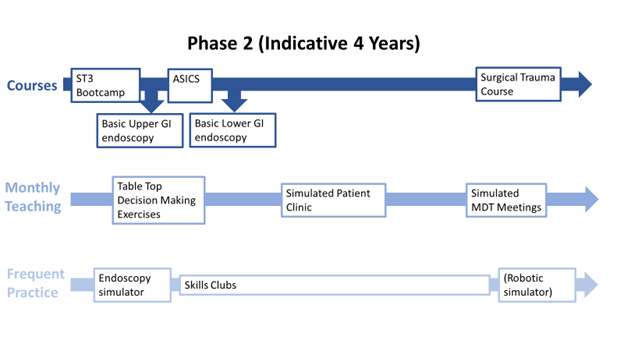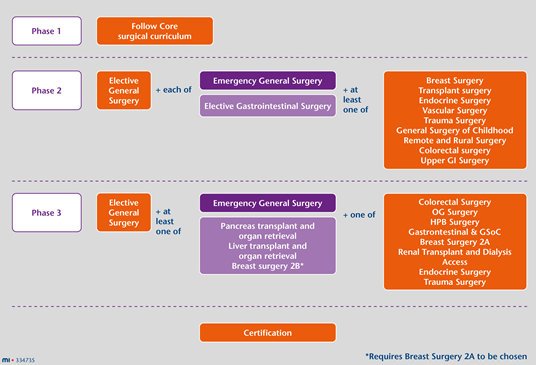Trainee information
Training phases
The Curriculum takes a more holistic view of training. It utilises multi-consultant reports to give a broader review of trainee progress and matches assessment to the work expectations of a new consultant. It moves from being a time-based to a competency-based programme.
Training will be split over 3 phases:
Phase 1 - Early years training (ST1-2) indicative 2 years
Core Surgical Training (CST) Programme in Scotland.
Phase 2 - Middle years training (ST3-6) indicative 4 years
All trainees will complete modules in elective and emergency general surgery at phase 2 – they will be able to manage the pre & post-operative care of the unselected emergency take.
The new curriculum identifies that simulation should be used as part of a blended learning approach for delivery of training; running concurrently with supervised clinical practice. It identifies simulation as a useful methodology for development of technical skills, team-working, leadership, judgement and professionalism.

Phase 3 - Final years training indicative 2 years
During phase 3 80-85% of general surgical trainees will complete training in emergency general surgery. They will be able to perform common emergency general surgical operations fluently without guidance or intervention and be able to anticipate, avoid and/or deal with common problems/complications.
A diagram outlining the new general surgical training pathway can be seen below.

Assessment of competency
Competency will be assessed across 2 areas with equal weighting given to both. These are the General Medical Council (GMC) Generic Professional Capabilities (GPCs) common across all medical curricula and new surgical Capabilities in Practice (CiPs); which directly reflect areas of surgical consultant working.
Areas of GPCs particularly pertinent to simulation training are:
Domain 2 - Professional Skills
Domain 5 - Capabilities in leadership & teamworking
This page was last updated on: 18.08.2023 at 11.00